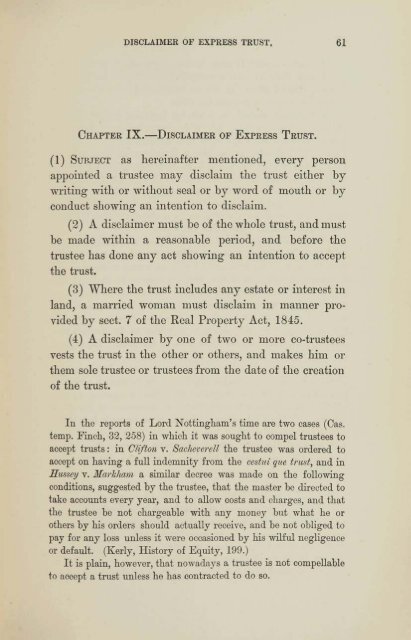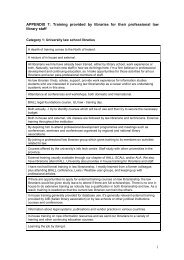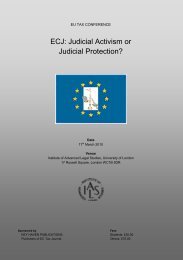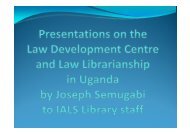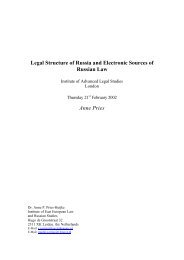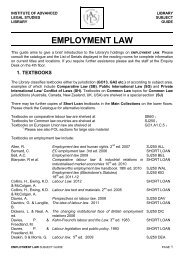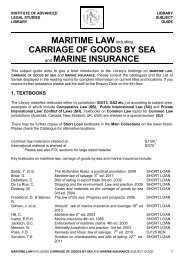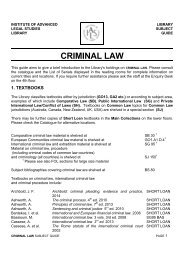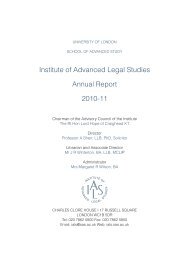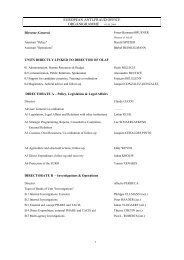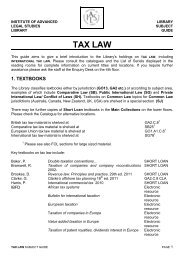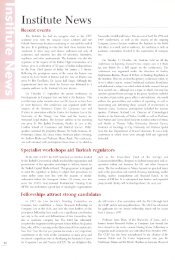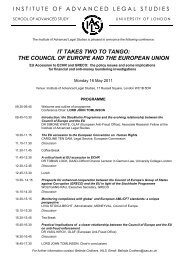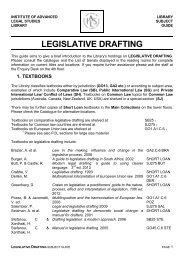a thesis - Institute of Advanced Legal Studies
a thesis - Institute of Advanced Legal Studies
a thesis - Institute of Advanced Legal Studies
You also want an ePaper? Increase the reach of your titles
YUMPU automatically turns print PDFs into web optimized ePapers that Google loves.
DISCLAIMER OF EXPRESS TRUST, 61<br />
CHAPTER IX.—DISCLAIMER OF EXPRESS TRUST.<br />
(1) SUBJECT as hereinafter mentioned, every person<br />
appointed a trustee may disclaim the trust either by<br />
writing1 with or without seal or by word <strong>of</strong> mouth or by<br />
conduct showing an intention to disclaim.<br />
(2) A disclaimer must be <strong>of</strong> the whole trust, and must<br />
be made within a reasonable period, and before the<br />
trustee has done any act showing an intention to accept<br />
the trust.<br />
(3) Where the trust includes any estate or interest in<br />
land, a married woman must disclaim in manner provided<br />
by sect. 7 <strong>of</strong> the Real Property Act, 1845.<br />
(4) A disclaimer by one <strong>of</strong> two or more co-trustees<br />
vests the trust in the other or others, and makes him or<br />
them sole trustee or trustees from the date <strong>of</strong> the creation<br />
<strong>of</strong> the trust.<br />
In the reports <strong>of</strong> Lord Nottingham's time are two cases (Gas.<br />
temp. Finch, 32, 258) in which it was sought to compel trustees to<br />
accept trusts: in Clifton v. Sacheverell the trustee was ordered to<br />
accept on having a full indemnity from the cestui que trust, and in<br />
Hussey v. Mark/mm a similar decree was made on the following<br />
conditions, suggested by the trustee, that the master be directed to<br />
take accounts every year, and to allow costs and charges, and that<br />
the trustee be not chargeable with any money but what he or<br />
others by his orders should actually receive, and be not obliged to<br />
pay for any loss unless it were occasioned by his wilful negligence<br />
or default. (Kerly, History <strong>of</strong> Equity, 199.)<br />
It is plain, however, that nowadays a trustee is not compellable<br />
to accept a trust unless he has contracted to do so.


